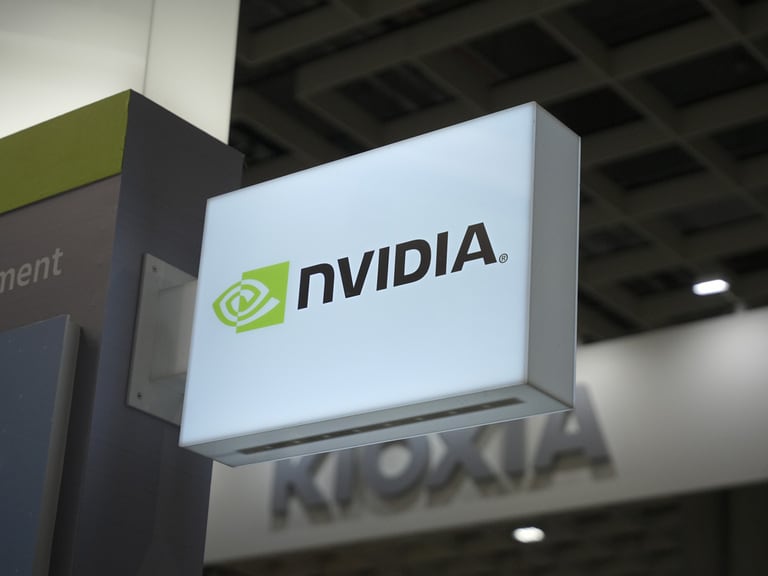Stock markets in Europe have rallied today on the back of the news that the US granted Huawei a 90 day extension before the ban will be implemented.
Europe
This is seen as a sign the US administration don’t want to turn up the heat on China just yet, but the ball is in Beijing’s court. The trade standoff is still very much alive, but this appears to be a slight reduction in hostilities, and some traders are taking the opportunity to snap up equities.
Galliford Tryshares are in demand after the company issued a positive trading update. The construction group said it anticipates full-year earnings to meet analysts’ forecasts. A strategic review was carried out, and the aim is to focus the construction division on its core strengths, and that might lead to as many as 350 job losses. The group incurred write-downs in relation to a project running over-budget in Scotland, and now they will be more selective in the contracts they peruse, and it seems that Galliford have learned from Carillion and Interserve, and they need to avoid spreading themselves too thin. Revenue is tipped to decline in the near-term on account of the strategic review, but cost saving will be achieved in the medium term, and that should help operating margins.
It’s the same old story at WH Smith, whereby the stores in transport locations are performing well, and are offsetting the underwhelming high street performance. Quarterly like-for-like (LFL) sales increased by 1% while the travel unit posted a 3% increase in LFL sales, and the high street business registered a 1% fall in LFL sales. Stephen Clarke, the CEO, will step down in late October, and he is leaving the company in good condition as the stock price has grown considerably since July 2013, when he took the top job. The rally in the share price is all the more impressive when you consider how the wider retail sector is performing.
Halfords shares haven’t moved much today even though the company confirmed that full-year underlying pre-tax profit fell 17.9% to £58.8 million –the lower end of the range that is declared in January – when the share price sold-off aggressively. The mild winter assisted bicycle sales, which rose by 2.6% on a LFL basis, but the motoring sales dropped by 0.4% on a LFL basis. Given the muted reaction to today’s update it seems a lot of the bad news was already priced-in. The group is going to focus on cost saving initiatives as it predicts the consumer environment will remain challenging.
Tesco declared its intention to exit the mortgage market and it described the sector as ‘challenging’. The firm was offering cashback offers and it cut fees to entice prospective home buyers, as it was trying to act as a challenger to the old-guard, but now it has decided to stop offering new home loans. The latest reporting season showed that may well-established high street banks are finding lending margins are under pressure, and Tesco would rather walk away that compete in a market with tight margins. Offering generous discounts years ago in order to fend off Lidl and Aldi hurt the supermarket division, and they are keen not to make the same mistake with the banking division. Barclays, RBS and Lloyds are higher on the back of the news.
Royal Mail shares have fallen to an all-time low ahead of the company’s full-year figures tomorrow. The frim finds it difficult to keep costs down, and traders clearly have low expectations.
US
Wall Street has bounced back after yesterday’s poor performance, and in light of the Huawei ban delay, stocks like Lumentum, Micron Technology and Broadcom have all rallied. The chip makers suffered greatly yesterday, and now we are seeing a reversal. Just because there is a window of opportunity to patch up the US-China trade relationship, there isn’t any guarantee that it will be revolved, so some of the tech stocks are not out of the woods yet.
It has been a bad day for US retailers Kohl’s and JCPenney both posted disappointing results. Kohl’s quarterly EPS came in at 61 cents, but the consensus estimate was 68 cents. Sale at stores that are open at least one year dropped by 3.4%, and was a massive disappointment as traders were only expecting a 0.15% decline. To make matters worse, the firm lowered its full-year EPS guidance to between $5.15 and $5.45, while the previous outlook was for between $5.80 and $6.16.
JCPenney confirmed that its first-quarter loss per share was 47 cents, which was wider than the 38 cents per share loss that dealers were anticipating. Revenue for the three month period was $2.44 billion, which was just shy of the consensus estimate.
Home Depot delivered a solid set of quarterly figures, as revenue jumped by 5.7% to $26.38 billion, which narrowly topped the consensus estimate. EPS came in at $2.27, and equity analysts were expecting $2.18. The US division underperformed the global business as same-store-sales grew by 2.5% and 3% respectively. The US house market has showed some signs of cooling, but it is in good shape. The Federal Reserve seem to be in no rush to hike interest rates, and that should help Home Depot.
FX
The US dollar index hit its highest level since late April as the greenback’s broadly bullish trend continues. Given the uncertainty surrounding Brexit, and the mediocre state of the eurozone, the US dollar is taking advantage of its safe-haven status.
GBP/USD has been hit by the firmer US dollar, but the disappointing UK CBI total orders report played a role in the negative move too. The update for May showed a reading of -10 – its lowest reading since October 2016, while economists were expecting a reading of -6.
AUD/USD enjoyed a bounce yesterday on the back of the surprise victory of the Liberal-National coalition in the country’s general election over the weekend, but the Aussie dollar has turned lower again, and it has fallen back into the recent bearish trend. Now that the election is out of the way, the Reserve Bank of Australia governor, Philip Lowe, said the central bank will ‘consider the case’ for a rate cut next month. Domestic economy aside, while the US-China trade saga drags on, the Australian dollar is likely to suffer.
Gold has been hurt by the firmer US dollar, and the metal’s strong inverse relationship with the greenback is still in play. The commodity has been drifting lower since February, and if the April low is taken out, it should pave the way for further losses.
The oil is market is subdued today but there is still a lot going on in terms of concerns about supply levels. OPEC have recently indicated they are keen to keep the productions cuts in place, and political tensions are heating up between the US and Iran – a major exporter of oil, even though some sanctions are already in place.
’






